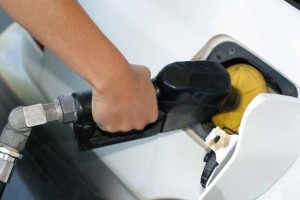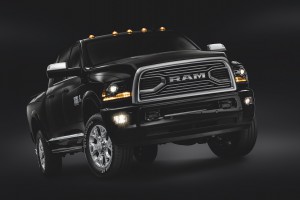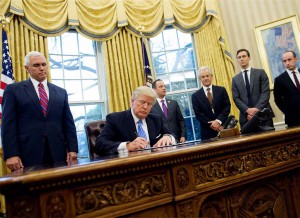One of the first moves made by newly inaugurated Pres. Donald Trump was to re-open the “mid-term” review of the federal Corporate Average Fuel Economy, or CAFE, standard set to reach 54.5 mpg by 2025.
But if that review were to curtail the fuel economy target it could face strong resistance from the American motoring public, according to a new study by Consumers Union. According to the non-profit group, nearly nine in 10 Americans believe the auto industry should continue to drive towards more fuel efficient vehicles.
“Consumers see the value in fuel efficiency, and the technology more than pays for itself through fuel savings,” said Shannon Baker-Branstetter, the policy counsel for Consumers Union. “As automakers increase vehicle efficiency, consumers benefit from greater savings.”
(Despite cheaper gas, American motorists still check the mileage numbers when comparing vehicles to buy. Click Here for the story.)
According to CU, the policy arm of Consumer Reports magazine, more than a third of consumers listed the need to improve the mileage of their current vehicle as their area of biggest concern – that’s far and away more than the number of motorists who listed such things as horsepower or connectivity.
At a time when some proponents of smaller government have advocated eliminated mileage standards entirely, 73% of those surveyed by Consumers Union agree that government should be responsible for setting higher fuel efficiency standards. And 79% said that is important to boost mileage for even larger vehicles, such as SUVs and pickups.
An equal number, said a summary of the CU survey, “agree that increasing fuel economy from a real-world average of 25 MPG today to 40 MPG in 2025 is a worthwhile goal.” The figure for 2025 isn’t a random number. While the official EPA target for that year is 54.5 mpg, once various credits and adjustments are made, the real-world goal for that year actually comes down to somewhere in the low-40 mpg range.
Despite frequent statements by the auto industry that manufacturers are working to boost mileage and lower owners’ fuel bills, only 30% of those surveyed actually agreed that “automakers care about lowering fuel costs for their customers.”
The numbers are so lopsided as to leave little room for interpretation; Americans clearly want the government and the auto industry to continue to have their foot to the floor when it comes to improving fuel efficiency. And that’s despite the fact that fuel prices have again dipped to about their lowest level – adjusted for inflation – in decades.
“With summer driving season underway, consumers don’t want to spend more on gas than they have to,” said Baker-Branstetter. “Even with low gas prices, consumers still want fuel economy to improve, including in larger vehicles. Automakers should pay attention to these findings and develop more efficient vehicles to give consumers what they want.”
(A reason to celebrate: fuel prices fall ahead of July 4 holiday. Click Here for the story.)
There has been little word from the EPA since Pres. Trump signed an executive order requiring the agency to reopen its CAFE review. Meanwhile, automakers have been largely quiet want or expect the Trump Administration to do, notably those manufacturers, such as Ford, that supported a rollback of the 2025 mileage mandate. If anything, a number of foreign manufacturers, including Honda and Nissan, have said they expect to make little to no changes to their product plans for 2025, even if the CAFE standard were to be abandoned entirely.
Even if the White House were to retain the targets set during the Obama Administration, a Senate bill could offer retroactive credits that would effectively reduce the numbers automakers would have to aim for.
But the new CU study suggests that consumers might not be receptive and could steer away from brands that slacken off in favor of marques that manage to deliver better mileage — especially if their products were otherwise equal.
(To see why Americans are likely to set new driving records this holiday, Click Here.)




I believe most Americans do want better fuel mileage. I also believe the manufacturers are working the fastest they can so they can claim “Our car gets better mileage than brand x so buy from us.” What I don’t want is a government goal set so high that the already too expensive price of a vehicle is forced even higher out of my reach.
What I find intriguing is that auto history has shown that government mandates, over time, cost far less to meet than manufacturers and critics claim.
Paul E.
I wonder who was surveyed to determine that “9 in 10 Americans” demand better fuel economy? If, indeed, 90% of all Americans want better fuel economy, why is there such a waiting line (and outrageous dealer mark-ups) for the high performance Dodge Charger, and Challenger along with Ford Focus ST & RS, and Mustang cars at the Dodge and Ford dealerships? I don’t see dealerships padding the Monroneys of fuel-sipping economy cars; in fact, the government is paying people to buy the electric-boosted cars.
Gene, if you criticize stats be careful when offering up your own. You need to take a look at the actual sales numbers for the Charger and Challenger, as well as Focus ST and RS, or Civic Si and Type-R, et al. In the case of Honda, for example, you’re talking thousands v 100s of thousands for the conventional models. The Charger and Challenger are mere blips on the overall U.S. sales charts, and even with the launch of the Hellcat and Demon variants, the V-6 versions overwhelmingly dominate.
As to “fuel-sipping cars,” you might want to look at the broader automotive market: no, Kia Rio, Ford Fiesta and other econoboxes aren’t selling well. But the fastest-growing niches among SUVs/CUVs cover the smaller, more fuel-efficient models. The Toyota RAV-4 is likely to be the maker’s #1 model this year (v Camry), not its bigger, more fuel-hungry ute siblings. The Honda HR-V is subsuming the role of the Fit, and so on.
Now, parse the sales numbers further: yes, Ford offers big V-8s for those F-150s. But well over half of the demand today is for V-6 models, and the shift is growing. In fact, higher-mileage turbo fours and sixes are gaining ground in absolutely every segment. Where sixes remain available in midsize models — the new Camry, for example — they account for typically around 10% of demand.
New, higher-mileage technologies have also made it possible to drive utes with little (and, in a few cases NO) mileage penalty compared to sibling passenger cars.
Now, as to government subsidies for electrified vehicles: no question. I could get into the game of asking how much we inherently subsidize (and have long subsidized) gasoline and gas-powered vehicles but the point is we DO subsidize electrics today. But note the rapid ramp-up in Tesla sales AND the huge pre-reservations for the Model 3. We have yet to see how many will translate into actual sales but I’d say the odds are that most of these will be delivered if Tesla doesn’t screw up the launch badly. NOW…note that there is a cap on the number of federal tax credits for any manufacturer. Tesla is rapidly approaching the point when buyers will NOT get that $7,500. And there has been a cut in the number of states offering subsidies. Should the Model 3 come close to Musk’s projections, the argument you raise on electrics goes out the door. In fact, Model 3 will single-handedly outsell a large chunk of the performance cars on the market today.
Long answer, but after looking at CU’s methodology and knowing, anecdotally, what people are looking for, I think the study results are valid.
Paul A. Eisenstein
Publisher, TheDetroitBureau.com
The thing is, that cap may not matter if the price of getting a fleet average to future CAFE standards continues to be forced on the industry.
In a way, CAFE may be the artificial subsidization catalyst electric cars need.